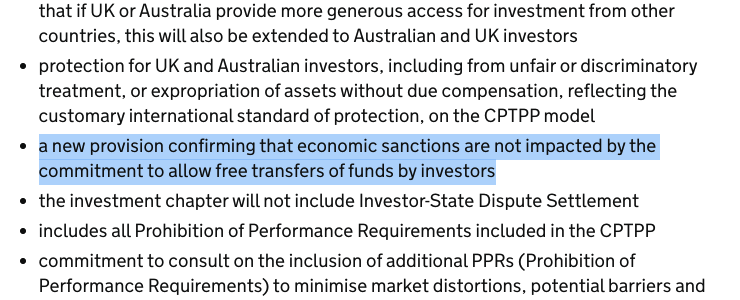
Aus-UK FTA on investment - while the treaty maintains investment protections, private direct enforcement via investor-State arbitration is out.
Press: gov.uk/government/pub…
Press: gov.uk/government/pub…

The question to ask - will the UK entertain ISDS when it negotiates with a lower-income, capital-importing country. I think the next few on the docket are all with high-income countries. But note, Japan and the EU/MS still want some private direct enforcement in.
Also interesting - new chapter on Development - which mirrors information sharing and cooperation. Would have been nice to see this be the focus for the investment protections. 

General exceptions will apply to the whole investment chapter. Interesting to see then how precisely drafted the commitments against unfair and discriminatory treatment are. Also getting a hint we're seeing some variance in this next generation of drafting. 

One deal does not signal a shift in overall thinking away from #ISDS. Canada agreed to remove ISDS w/ the US in the USMCA. Its 2021 model treaty keeps private direct enforcement in, while stressing innovations and supporting #MultInvCourt.
2021 FIPA: international.gc.ca/trade-commerce…
2021 FIPA: international.gc.ca/trade-commerce…
• • •
Missing some Tweet in this thread? You can try to
force a refresh







